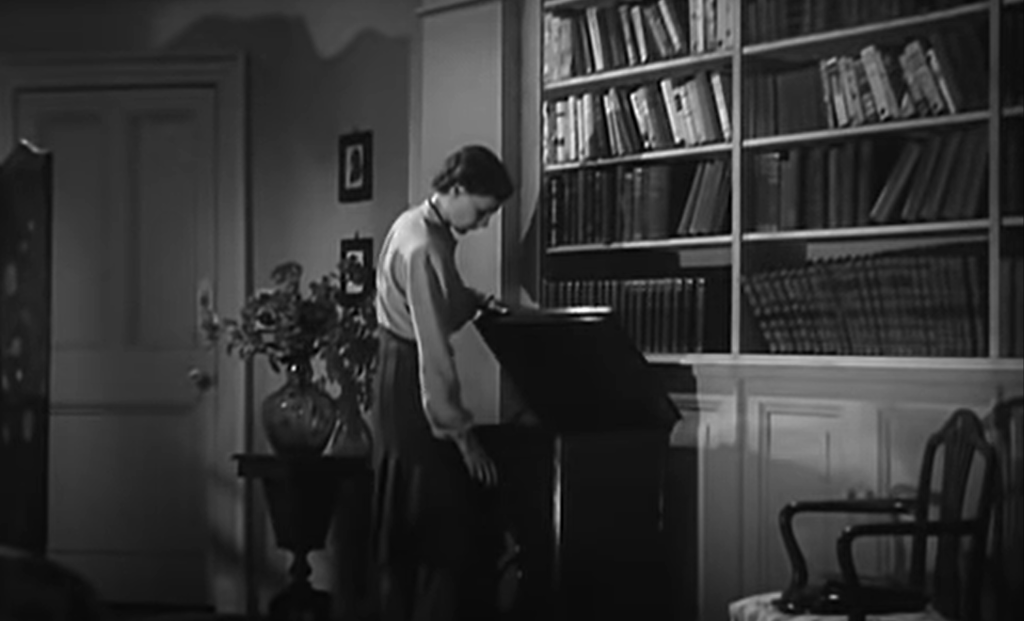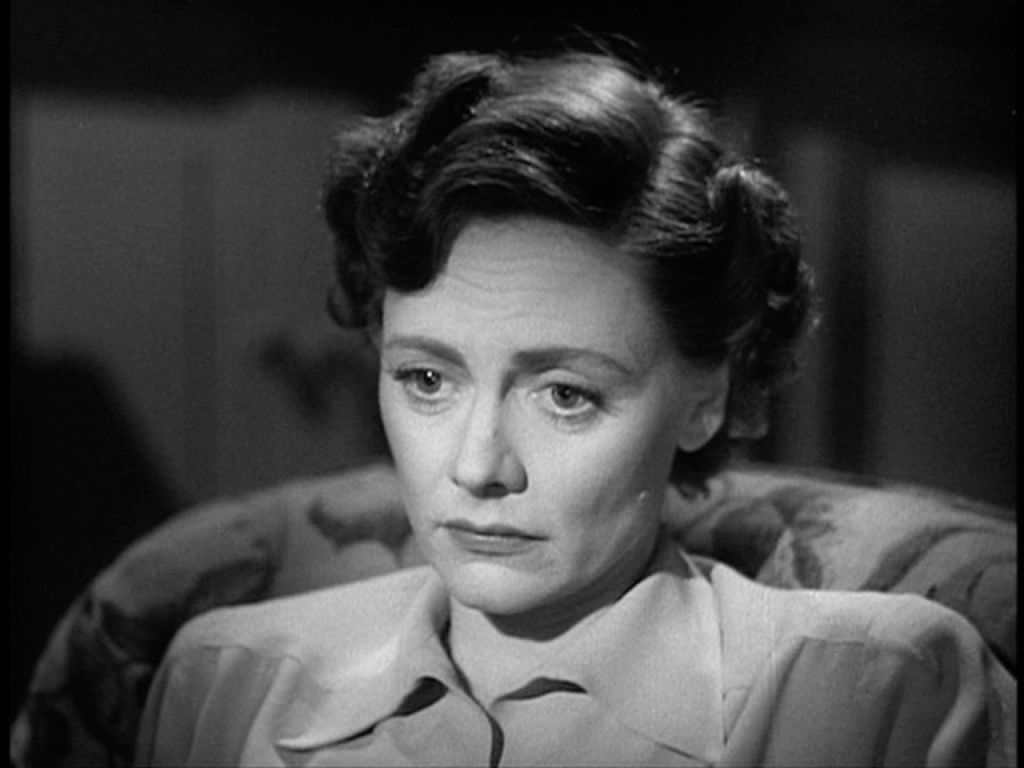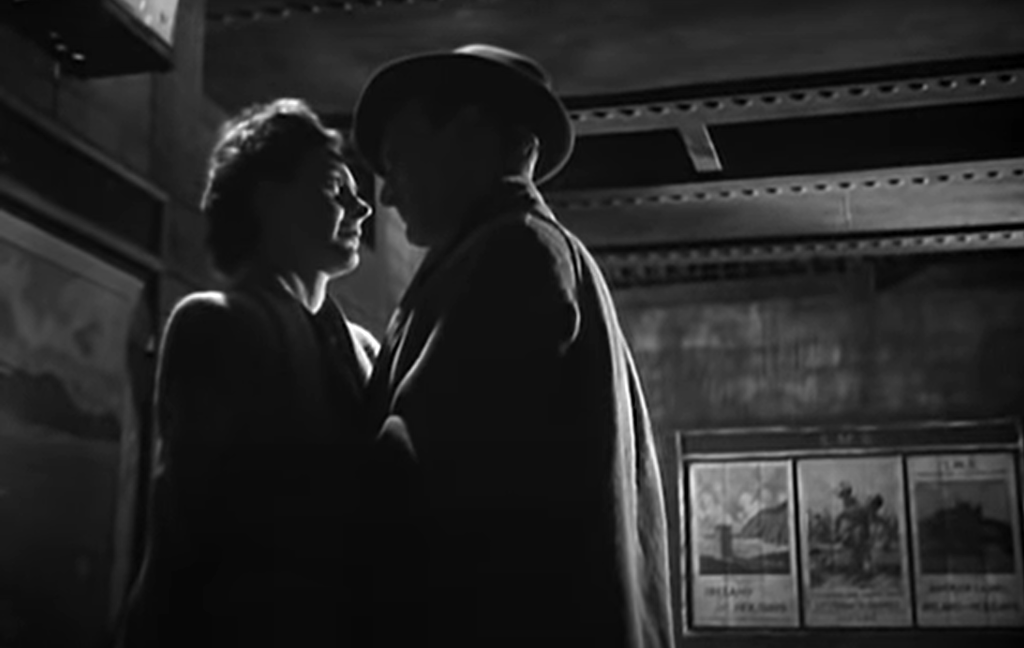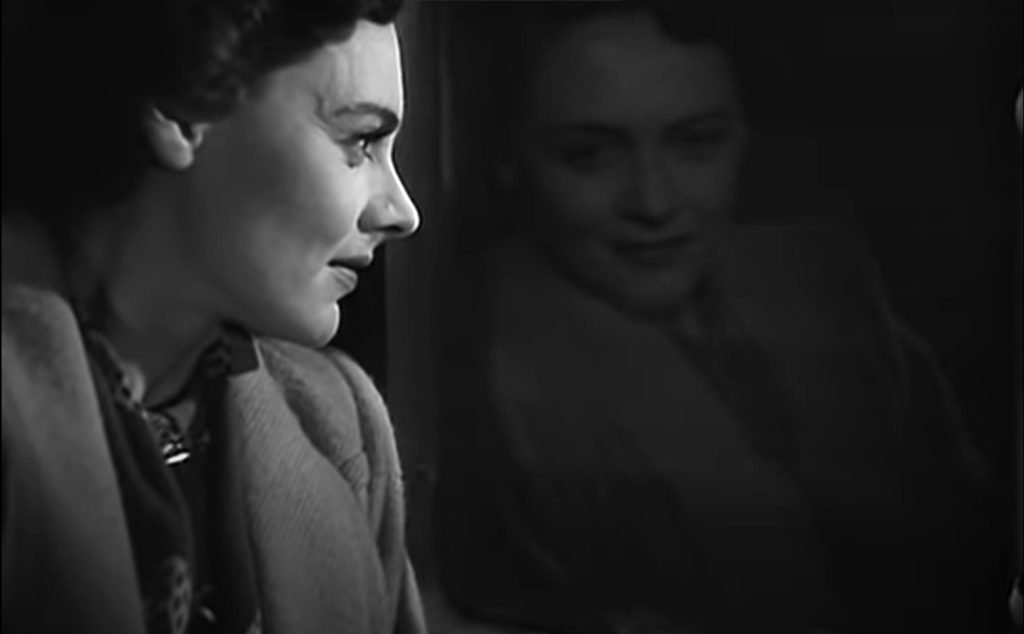How music becomes a vehicle for memory
By Regan Ball

Early on in David Lean’s classic 1945 melodrama Brief Encounter, the main protagonist Laura is tuning her radio to find music that fits her mood, eventually stopping when she hears Rachmaninoff’s Piano Concerto No. 2. Laura is a married woman in middle-class Britain who was living a monotonous life until she met Alec (a handsome doctor who was leading an equally dull life) at a commuter station on an ordinary Thursday. Over the course of seven weeks, they fall in love and have a romantic affair before realizing that they cannot escape the lives they have already chosen for themselves. At the end of their romance, their final goodbye at the train station is interrupted and the two of them part ways, never to see each other again. Back home with her husband Fred, Laura recounts the affair in an interior flashback tinged with bittersweet and slightly regretful feelings. The movie’s main music is Rachmaninoff’s Piano Concerto No. 2, an intense yet recklessly romantic piece that seems to call up her memories and underscores Laura’s inner monologue. Throughout the film, music is used as a bridge between memory and emotion.

The film is an emotional rollercoaster, and because it is being told as a flashback, there is a close relationship between Laura’s feelings and her recollection. After Laura and Alec see each other for the last time, Laura’s emotions are running high, causing the memories to come rushing back. Her inner turmoil influences the retrieval of her memories and send her into a state of nostalgia. Here Rachmaninoff’s music becomes the emotional milieu for remembrance. In his BFI guide for the film, Richard Dyer calls music the “sound of reverie” and a “well established device of interiority and emotional expressivity.” Indeed, music is often used in film as a way to express the mood of a scene and outwardly portray the innermost feelings of a character. It is also used to accompany flashbacks and often triggers them. For Laura, the concerto plays both on the radio and in her mind, a soundtrack to her memories, fading in and out as her thoughts are interrupted by her reality. Dyer describes the concerto as “turbulent, yearning, and melancholy… expressing the idea of the individual seized by overwhelming emotions.” The music certainly matches Laura’s intense inner turbulence caused by an incomplete goodbye to Alec. The piece starts off very angsty but soon turns into a flowing melody that reminds her of falling in love. As the piece goes on, the music becomes very passionate before sounding more wistful, like a desperate plea to preserve this one good thing in her life.
Besides paralleling Laura’s emotions, Rachmaninoff’s concerto acts as a trigger, transporting Laura into her memories. After she returns home from saying goodbye to Alec, she searches on the radio for music, stopping when she hears the piece—as if seeking and finding the proper soundtrack for her recollection. The music then transports her into the state of remembrance and she is completely immersed in the flashback until Fred’s voice cuts through her reverie and brings her back to the present. Film Music scholar, Berthold Hoeckner has noted that “As a vehicle of images, music jogs our memory; but in the moment of transport, it makes us forget, perhaps even ourselves.” Laura is so “lost” in her memories, that Fred notes how she’s been “miles away.” Here, kissing Alec for the fist time, Laura’s flashback is at the peak of emotion with the music reaching the climax to match. It seems that Rachmaninoff’s theme is playing only when she is immersed in her fantasies. When she is with her friend at the beginning of the film, Laura’s internal soundtrack is interrupted by the jabbering of her companion. Later, when Laura calls Fred saying she missed the train, Dyer notes that “the music stops the moment she gets through to Fred and starts again the moment she hangs up. In both cases, the music is associated with her and positively dissociated from anyone else.” In as much as Music is a catalyst for recall, but recall is also a conduit for music.

Lean’s film revolves around the central setting of the train station. Trains are a common literary symbol for “brief encounters” before people continue on their set path. Musicologist Michael Halliwell observes that “Alec and Laura are constantly aware of the clock and how little time they have to express their feelings for each other,” almost as if they were running on a train schedule. Trains and music are parallel modes of transport in and out of the love affair. While Alec and Laura are still seeing each other, trains shuttle between their real-life fantasy and the reality of their lives. Similarly, when reminiscing on her romance, music carries Laura into and out of her daydreams. Over the course of the film, music makes commuter trains morph from means of transportation into a medium of transport.

The cinematic voiceover has long been used as vehicles for such trains of thought—giving the audience access to the safe space that she has created in her mind, sharing her imagined confession of an illicit affair tormenting her conscience. The tone of her voice is very sad and longing, mourning the happiness she had briefly known with Alec, yet also mourning the life she had known before that happiness. Rachmaninoff’s Piano Concerto No. 2 also acts as a form of narration, connecting her unspoken feelings with reality. When she is sitting on the train at the very beginning of the film, the melody begins to play in her hear as she starts to think back on the affair. Later that night, when searching on the radio, she selects that concerto for her confession. She must know that piece well. And knows what it is good for—to carry and accompany her trains of thought.